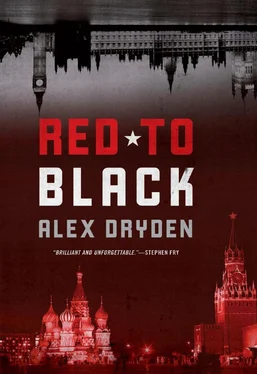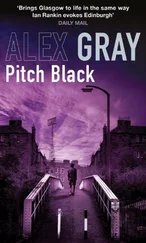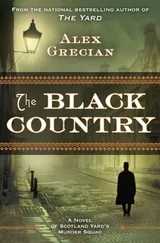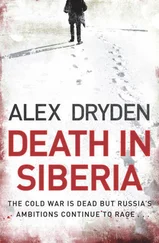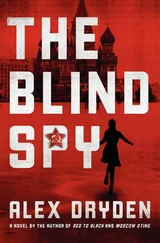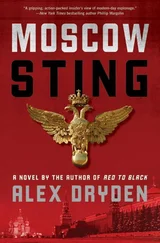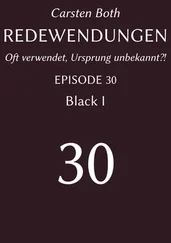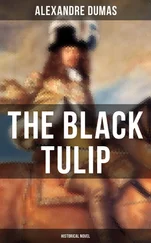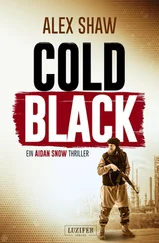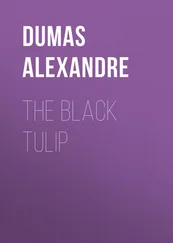Finn looks at me, to give me the opportunity to reconsider, perhaps.
‘That’s the question,’ he replies at last, and a shadow crosses his face; a shadow of grief, maybe, that a moment devoted to us and us alone has lost a rare opportunity.
He picks up a stick and dusts off the snow to reveal fungi still clinging to its rottenness.
‘History is a broken toy,’ he says, carefully handling the stick. ‘It breaks and gets fixed and breaks again. Bits fall off and are replaced. It breaks over and over again and everything is replaced and everything remains the same. History is like the axe that has its handle replaced over and over. Is it still the same axe? It functions in the same way. History is just a toy in the sense that people want it to function in the same way, and it does. It still breaks and is still mended in just the same ways.
‘What happened with KoKo in 1961 in East Germany sowed the seeds of a plan and the Plan grew and grew in ambition but it was always interrupted, thwarted by events and forces. When the Wall came down in 1989, we in the West thought it was all over. The Cold War was won. That’s how it seemed. The end of history, some idiot called it. But like so much in history our thoughts were coloured by our hopes- and our ill-conceived perceptions. You see, the past wouldn’t go away. The Plan only lay dormant. Yeltsin, he was the real hope. But he himself and events around him conspired against a truly new Russia. In the nineties, you know this, Anna, Yeltsin could have got rid of the KGB for good, stuck a knife through its heart. But there was so much turmoil in the country that he didn’t quite make it. He didn’t have the time, or the will to make the final push. Perhaps he didn’t dare. Whatever. And now? Well, now the KGB is back and it will be stronger than it’s ever been. Putin’s Russia will be the KGB’s Russia, just as it’s been for the past seventy years. But it will be so with a major difference. This time, economic chaos will be replaced by economic abundance. The KGB will be richer than any organisation on earth, richer than the CIA. And the Plan will rise from its bed, nourished by the new men of power.’
‘What plan?’ I ask him.
‘You don’t know?’ he says, looking hard at me, and I feel for one moment that all he wants me for is this. And I don’t know the answer he wants.
He looks away, apparently relieved that I don’t know what he’s talking about, and beyond that, he doesn’t expand, however hard I press him.
Even for him this monologue is rather melodramatic and portentous, yet there’s something so powerful emanating from him as he speaks that my initial urge to laugh is quietened. He stands there in the dark forest, with the snow falling around us, like some kind of shaman possessed by a supernatural force. I wonder what I’m doing even considering trusting this man.
Yet I know we have missed a chance for us, an opportunity, and it was me who rejected it. This time there will be other chances, but one day we will run out of chances to save ourselves.
I realise that, despite the inevitable searching somewhere out there in the darkness. Finn has chosen to absent us from the microphones for this moment.
I wonder what General Kerchenko and my two case officers will think of Finn’s theatrical eloquence when I submit my report later. This Plan he talks about…Will they think it fiction? Bathos? Madness? To my surprise, they thought it was none of them. They ignored it.
IN THE SPRINGof the year 2000 Vladimir Putin moved into the Kremlin and began to cement his seat of power.
At the British embassy across the River Moskva from the Kremlin, Finn slowly undermined whatever power he possessed. He told me he’d argued with his station head about the direction in which Putin was taking Russia. He was uncharacteristically truculent and morose.
One afternoon the two of us took a trip out to New Jerusalem, the seventeenth-century Orthodox monastery on the River Istra west of Moscow, and afterwards we had supper with friends of mine who lived nearby. Finn usually drove when we went anywhere, but this time he asked me to bring my car. He was in a foul mood.
‘I’ve been given a formal warning,’ he grumbled. ‘Accept my government’s policy, work with the status quo, or get out.’
‘That seems reasonable,’ I said. Then we both laughed that it was I who was telling him to be loyal to his country. The rest of the trip revived his spirits and he seemed like his usual self.
But he told me as we walked around the huge monastery later that behind the scenes they were going to get him out anyway.
‘I’m finished with Moscow,’ he said finally, and we lit a candle to us.
He held my hand.
‘And I don’t want us to be separated,’ he said.
‘No,’ I said.
‘So if it’s going to be one thing or the other,’ he said, ‘us together, or you staying in Russia without me, which is it to be?’
I didn’t reply. And after the night by the pond, this was my second denial, a second opportunity lost.
In the weeks after our trip out to New Jerusalem, Putin first gathered round him the trusted members of his St Petersburg KGB clan, people who had worked with him when he was deputy mayor of the city, and from earlier when he was stationed in East Germany before the Berlin Wall fell.
Simultaneously he summoned the men who had been the real rulers of Russia in the shadows behind Yeltsin’s presidency.
I heard from a colleague based at the Kremlin that they came to him one by one. These shadow rulers were known to us Russians and to the world as the oligarchs. In the words of Boris Berezovsky, the oil, metals and media billionaire, they were the ‘seven bankers who ruled Russia’. These immensely powerful men had formed an uneasy alliance between themselves- one that transcended the clash of their own business interests–in order to put their support behind Putin to win the presidential elections. First, they had persuaded Yeltsin as the millennium approached to hand his crown over to the younger man and now they supported Putin to ensure that he won the contested election. They were backing him with their huge resources as the best candidate to protect their own interests.
One night Finn and I went to see American Beauty at the cinema in Tverskaya. Finn fidgeted throughout the film and when I tried to talk about it afterwards he appeared not to have seen it at all.
‘They’re afraid for their prospects if Evgeni Primakov wins the presidency,’ Finn said.
‘Who?’ I asked him, thinking about Kevin Spacey’s dead-looking face in the movie.
‘The oligarchs! They’re so afraid of Primakov that they’re going to jump straight into the fire and support Putin!’
Primakov was my chief, the boss of the SVR, who was running against Putin in the elections.
‘Are there really people like that in America?’ I asked, thinking still about Spacey’s character. But Finn was obsessed. For once it was me trying to introduce some levity, not him.
‘It’s just the same as it was five years ago,’ Finn went on. ‘Then it was the Communists they were afraid of. They thought the Communists would turn back the clock and deprive them of their wealth. So they formed an alliance between themselves for as long as it took to see off that threat and make sure Yeltsin was re-elected.’
‘Are we going to get something to eat?’ I suggested. ‘Or are you going to rave on out here? I’m freezing.’
So we went into Yolki-Palki on the other side of the Bolshoi from Tverskaya. Finn always liked it there. The restaurant was dressed up in peasant decor with straw bales and wooden farm animals and checked tablecloths. Finn stopped talking about the elections for a moment.
Читать дальше
